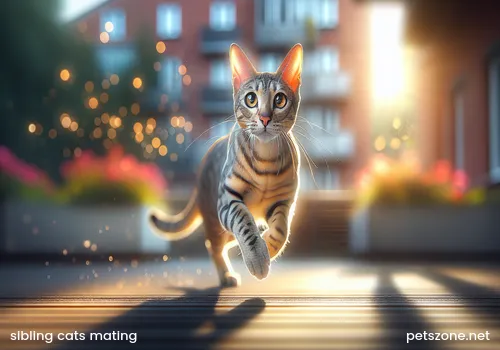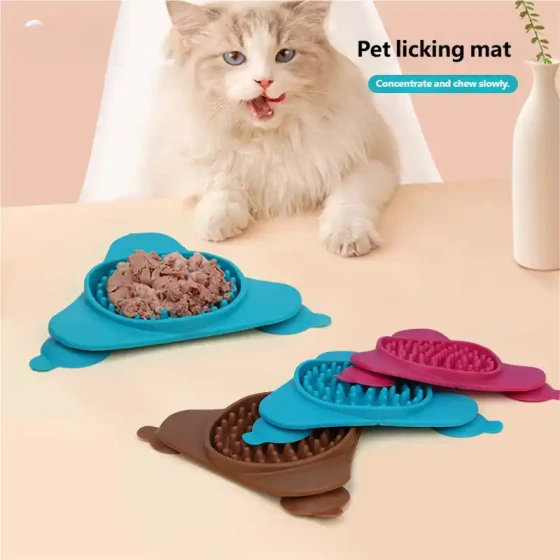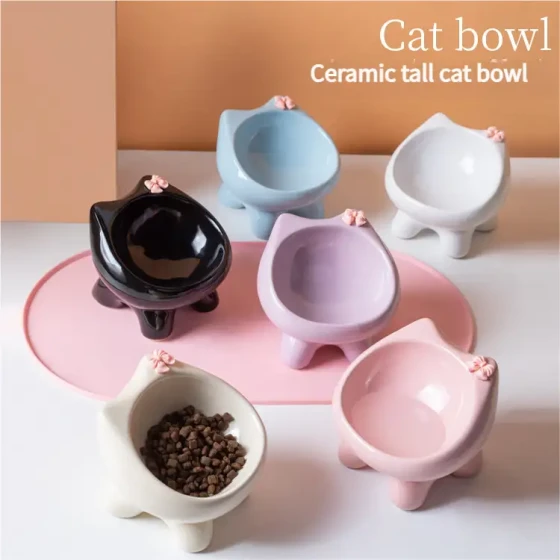Will Sibling Cats Naturally Mate_The Harms and Preventive Measures of Inbreeding
Many cat-owning households have this question: Will sibling cats at home naturally mate when they are in heat? If inbreeding occurs, what impact will it have on their offspring? How can this situation be avoided? Don’t worry, this article will answer these questions for you.
First, here is a direct answer for you: Yes, sibling cats will naturally mate after reaching physiological maturity if no measures are taken, leading to inbreeding. This is because cat mating behavior is mainly driven by reproductive instincts; they do not have complex social morals and ethical concepts like humans. In the feline world, as long as they are in heat and have a suitable opposite sex nearby, mating can occur regardless of whether the other cat is a brother, sister, or parent.

Cat "ethics"? They don’t exist!
Many people wonder, can cats not recognize their family? Actually, cats can distinguish relatives by scent. If they grow up together from a young age, they will remember each other's familiar smells, but this does not mean they follow "ethical" rules like humans during heat. For cats, hormones surge during heat, and the instinct to reproduce overrides everything. Finding a mate and reproducing are tasks engraved in their genes. Without other options, siblings or even parents around them might become mating partners. This may sound surprising, but in the cat’s world, it is completely normal physiological behavior.
The Harms of Inbreeding: Not Just "Stupid" Cats
Although cats themselves don’t feel there is a problem, the consequences of inbreeding can be disastrous for their offspring. Just like humans are advised against close relative marriage, cat inbreeding also brings a series of health issues, mainly reflected in the following aspects:
- Greatly increased risk of genetic diseases: This is the most significant harm of inbreeding. Many cat genetic diseases are controlled by recessive genes and only occur when both parents carry the same recessive pathogenic gene. The closer the blood relation between cats, the higher the probability they carry the same genes, meaning higher risk for genetic diseases in the offspring. Common genetic diseases include but are not limited to heart disease (such as hypertrophic cardiomyopathy), kidney diseases (such as amyloidosis), immune system deficiencies, neurological problems, etc. These diseases may lead to frailty, illness, or even early death, seriously affecting their quality of life.
- Decreased immunity: Prolonged and severe inbreeding causes reduced genetic diversity, weakening the cat’s immune system. This makes them more susceptible to illnesses and reduces disease resistance. It’s like the logic of "don’t put all your eggs in one basket" — the more diverse the genes, the stronger the ability to resist risks.
- Reduced reproductive ability: Inbreeding may decrease cats’ reproductive capacity, showing as high rates of non-pregnancy, fewer kittens per litter, and increased newborn mortality. Even if kittens are born successfully, they may be weaker and develop slower.
- Amplification of trait defects: Inbreeding acts like a "magnifying glass" not only potentially enlarging positive traits but also exposing and amplifying hidden defects or potential problems carried by the parents, making the offspring more prone to various defects, possibly including physical deformities or internal functional disorders. Although some views hold that inbreeding doesn’t necessarily cause deformities, it does increase the chances of hidden genetic defects becoming manifest.
In short, inbreeding might cause a "lottery box" effect for cat offspring, with a greatly increased chance of "shocking surprises." Although some catteries may perform limited inbreeding to purify certain traits under professional guidance, it carries great risks. For ordinary family pets, avoiding inbreeding is an important step to ensure cat health and happiness.
Preventive Measures to Avoid Cat Inbreeding
Since sibling cats naturally mate and inbreeding has many dangers, how should responsible cat owners prevent this from happening? The most effective and thorough method is to neuter the cats.
- Timely neutering: This is the most effective way to prevent cat inbreeding and is strongly recommended by many veterinarians. It’s usually advised to neuter before cats reach sexual maturity. Female cats mature around 5–9 months old, males around 9–12 months, though some may mature earlier. Neutering female cats before their first heat is ideal because uterine congestion during heat increases surgical risks. After neutering, cats will no longer go into heat, naturally eliminating the possibility of accidental pregnancy and inbreeding. In addition, neutering reduces risks of some reproductive system diseases like pyometra and mammary tumors in females, and testicular tumors in males.
- Separate housing: If neutering cannot be done immediately or in special cases, ensure that male and female sibling cats are completely separated so they have no contact during heat. This means placing them in different rooms with adequate barriers that prevent cats from entering each other's space.
- Distraction: Female cats in heat may become very restless, vocal, and engage in urine marking. Owners can spend more time with them, playing or grooming, to distract and ease their discomfort.
- Use of sanitary pants/diapers: For females in heat, consider using pet sanitary pants or diapers. Although these cannot fully prevent mating, they help reduce accidental occurrences and keep the home clean from secretions during heat.
Note that giving cats human contraceptives or unknown medications to stop heat is very dangerous, can cause severe harm to cats’ health, and may be life-threatening. Never attempt this!
Frequently Asked Questions
- Do cats have a sense of morality?
Cats do not have moral concepts like humans; their behavior is mainly influenced by instinct and environment. - Can cats recognize their mother?
Yes, cats can recognize their mother by scent, especially those raised together from a young age. - Why are purebred cats prone to genetic diseases?
To maintain specific breed characteristics, purebred cats often undergo some degree of inbreeding during breeding, which reduces genetic diversity and makes recessive genetic diseases more likely to manifest.
In conclusion, sibling cats will naturally mate, but inbreeding carries many potential risks to the health of their offspring. To avoid overpopulation and be responsible for their offspring’s health, the safest and most recommended approach is to neuter cats before they reach sexual maturity. This not only ensures cats' health but also allows you and your beloved cats to live a more relaxed and happy life.



